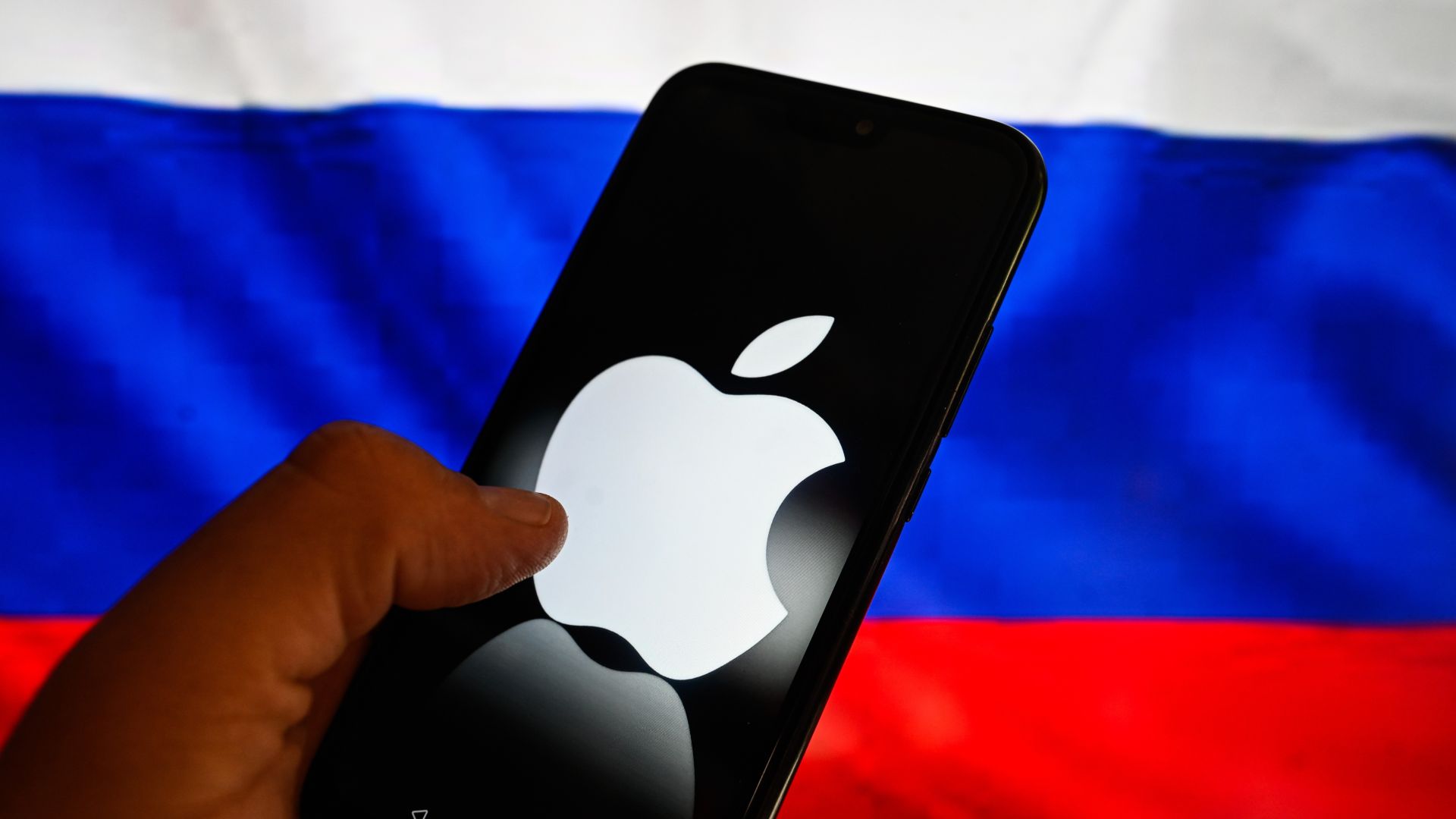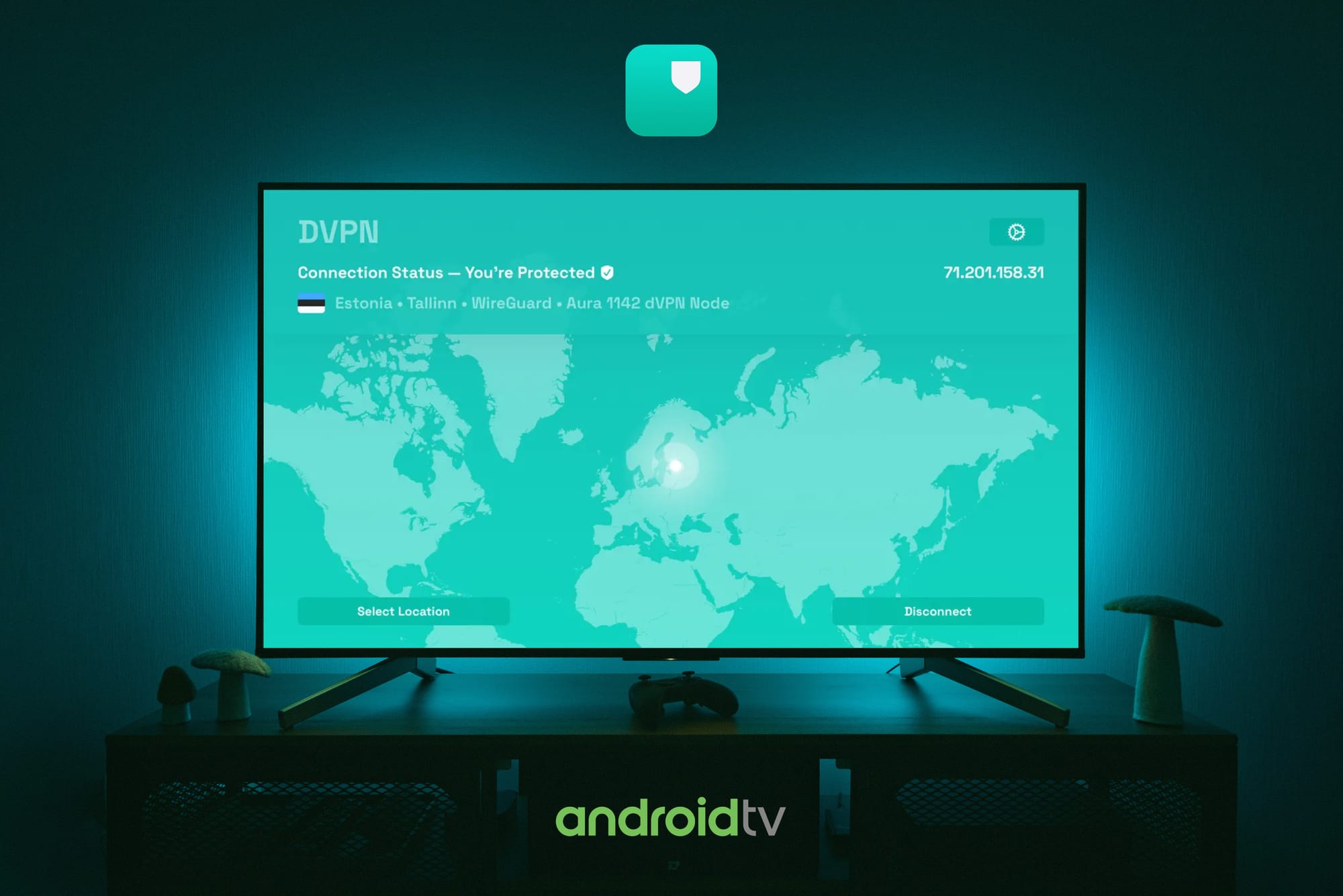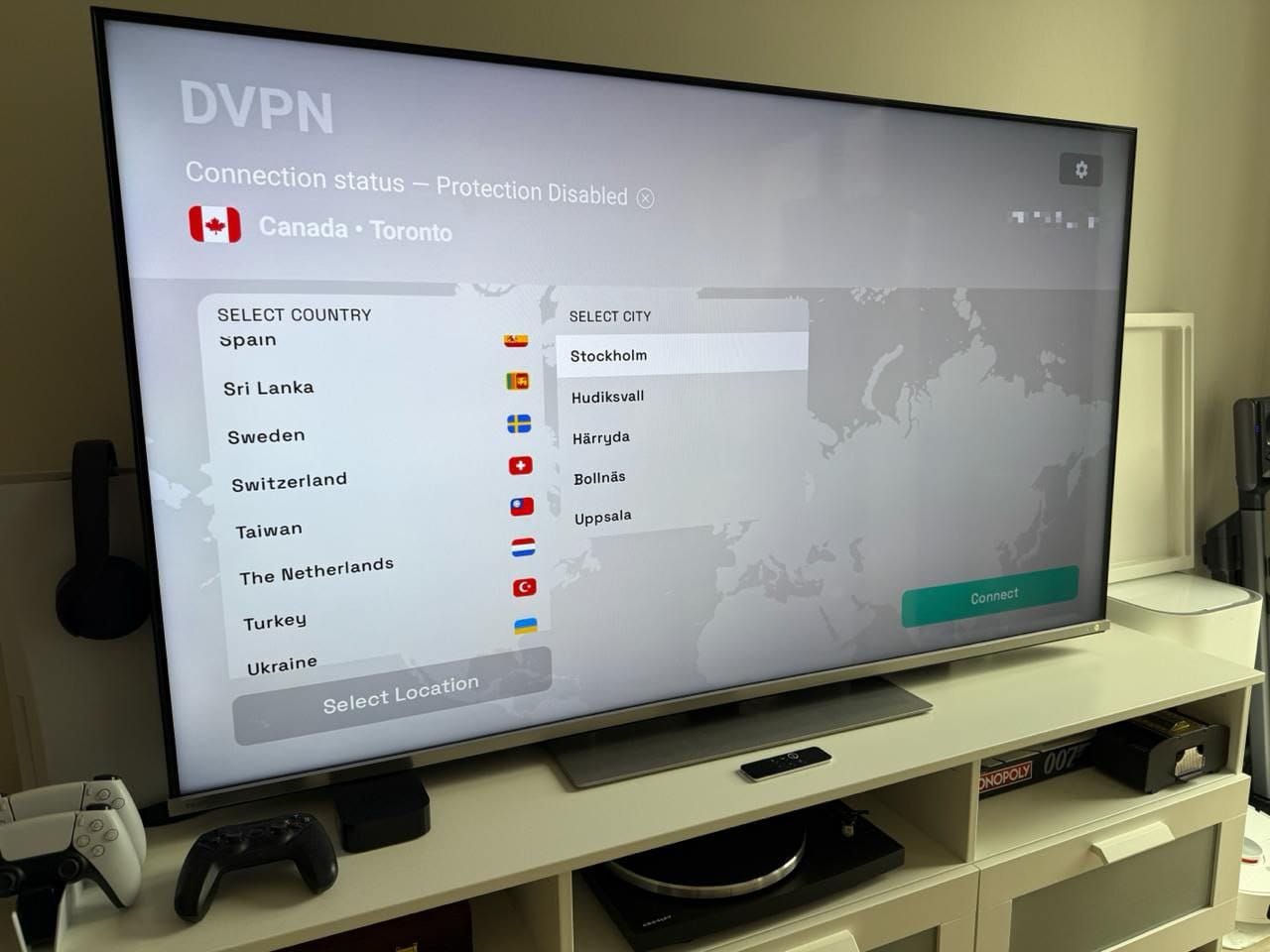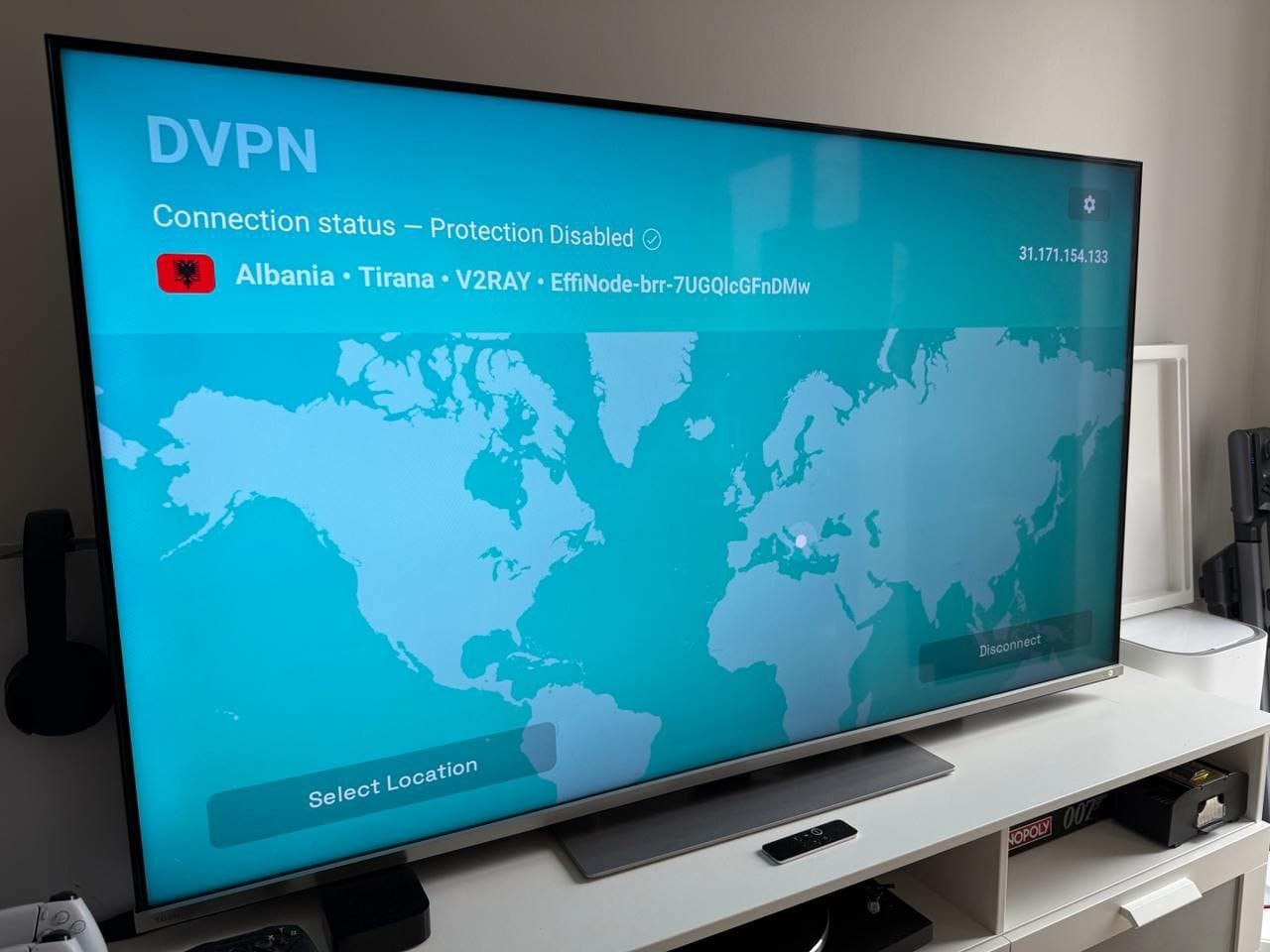Sky's the Limit: dVPN's Expansion to Smart TVs Confirms Adoption Potential
Op-Ed: NORSE's roaring success on Apple, Android TV shows that dVPN can dominate markets; not just fill niches.

Over the past two months NORSE Labs has been making an effort to expand their standalone freemium dVPN client to smart TV platforms including Apple and Android TV—and the result has been nothing short of electric.
Before it was expunged from the app store by the Russian government on the 17th, DVPN (better known in the community as "dVPN by NORSE") rose to an astonishing number two on the free app charts. Though the ban was a setback, the success within the VPN-unfriendly country became a launchpad for the app in other markets.
dVPN by NORSE's Apple TV chart position in ten nations as of 13 April:
| Country | App Store Rank (Free Apps) |
|---|---|
| Russia | #2 (Peak) |
| Vietnam | #39 |
| Tanzania | #39 |
| Italy | #64 |
| Ukraine | #100 |
| United Kingdom | #155 |
| Saudi Arabia | #159 |
| Senegal | #500 |
Almost all of these users were totally unaware they were even using a blockchain-based product; a fact which highlights the potential of dVPN to not just provide a crypto and privacy-friendly alternative to its Web2 predecessors, but actively compete with and beat them. More on the implications of that later on.
The removal from the app store in Russia had a silver lining: It brought newfound attention to Sentinel and dVPN technology from the digital privacy movement. The highlight of this was an article by Chiara Castro of TechRadar, one of the world's most widely-read technology news outlets. This alone was Sentinel's most significant mainstream (non-crypto) media exposure in years.

The situation also attracted the attention of AppCensorship, a project of PRC censorship watchdog GreatFire.org, who revealed that Russia had also attempted to force the Google Play Store to remove DVPN's release for Android TV. To Google's credit, they did not comply with this request.
Sentinel's Path to Dominance?

So why was dVPN this much of a hit on smart televisions in particular? Sentinel's dVPNs have experienced levels of success on mobile and desktop which most blockchain-based apps could never even dream of; but things are really clicking with this new, previously-unexplored medium.
Before Sentinel put the technology on the blockchain and made it trustless, it was safe to assume that if a VPN service wasn't charging you money, they were making money off of you through much less savory methods, such as selling your data. Many digital privacy watchdogs even explicitly recommend against using free VPNs.
Sentinel and its associated third-party projects are experts at putting together attractive minimalist interfaces which are easy to interpret and navigate. This is an absolute necessity for a medium which requires clunky remote-based controls.
Though it may be a surprise to those who haven't used a VPN on a smart TV, industry titans such as NordVPN often make incredibly mediocre ports for the platform. In addition to poor visual design, they are far from foolproof at freeing streaming services from georestrictions—which brings us to the next point...
Sentinel nodes can be started anywhere by anyone, and if you're a streaming service trying to blacklist them, you're playing a completely futile game of whack-a-mole. The servers of traditional VPNs, by contrast, are easy for them to identify and block en masse.
We've discussed the unique nature of dVPN within the blockchain dApp industry many times on this website: Chiefly, that blockchain products tend to be inferior facsimiles of existing products with a crypto component appended to them.
dVPN has far more to offer than just crypto payments and trustless privacy—it is simply a better product in every way. That will become more and more apparent to the world as application development catches up with the VPN establishment and advanced features and interface improvements continue to be introduced.
Smart TV releases can provide Sentinel with a consumer adoption wellspring—a niche within the marketplace that it can not only compete in, but completely dominate. From there, building on that success to directly compete with centralized VPNs on mobile and desktop platforms is only a matter of selling premium subscriptions to TV users and getting them to download the apps on their other devices.
Clicke the button below to visit the NORSE Labs website and download their standalone app for Android (mobile and TV), iOS, Apple TV or Mac. A Windows version is also on the way.
NORSE's other flagship product, a dVPN Bot for Telegram, is usable on Android, iOS, Windows, and Mac.


Photos of dVPN by NORSE on Android TV shortly before submission to Google Play. [Credit: A. Litreev/NORSE]
More Sentinel Smart TV Releases
In addition to Apple and Android TV, NORSE Labs intends to bring their app to other smart TV platforms like Amazon's Fire OS and LG webOS over the coming months.
In our extensive feature on them published in February, MathNodes expressed interest in porting Meile dVPN to smart TVs, though this is a more distant prospect for the time being.
Any Sentinel-powered dVPN with a downloadable Android APK can theoretically be installed on Android TV, though this method is not officially supported and there is no guarantee of success. Last year, some community members reported that they'd gotten Independent dVPN working this way.
At dVPN News, every member of the Sentinel community is a contributor. Whether you're writing articles, sharing tutorials, or participating in discussions, your involvement is what drives our collective growth, and best of all it's rewarded! Together, so if you to contribute to the growth of the Sentinel Network, you are in the right place!
Connect With Us
Stay in touch and be part of our growing community:
• Follow Sentinel on X
• Follow the Growth DAO on X
• Join the Growth DAO community Telegram Group
• Join the official Sentinel Subreddit, r/dVPN







